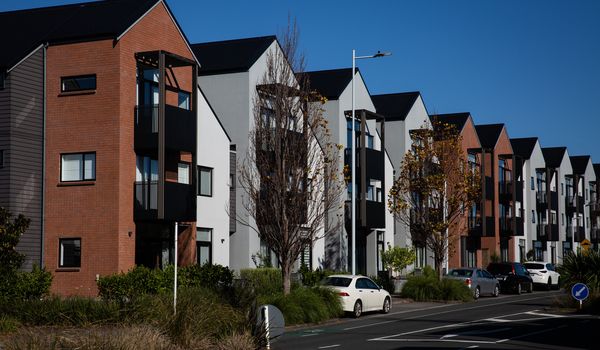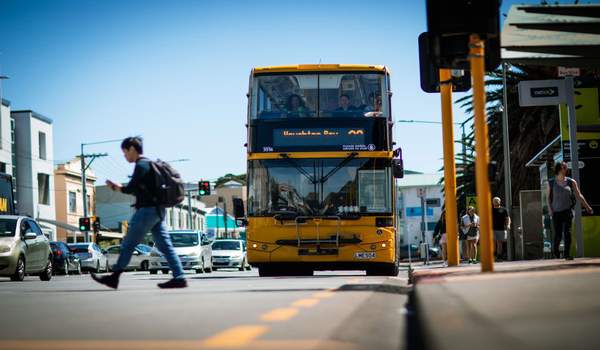💰 The Cost of Living in New Zealand: All You Should Know
As an increasingly popular destination for expatriates, New Zealand offers a distinctive blend of urban living and natural beauty.
However, as you contemplate making this enchanting island nation your new home, understanding its cost of living nuances is paramount.
In this guide, we’ll delve into the various facets that contribute to the overall cost of living in New Zealand.
1. Housing Costs
New Zealand’s housing market has been discussed recently, with varying dynamics across cities and regions.
Major urban centres like Auckland and Wellington continue to witness higher rental and property prices than smaller towns.
The average monthly rent for a one-bedroom apartment in the city centre ranges from NZ$1,800 to NZ$2,500 per month, while outside the city centre, it may be relatively more affordable at NZ$1,400 to NZ$2,000.
On the other hand, purchasing property can incur costs ranging from NZ$800,000 to NZ$1.5 million in major cities.

2. Utilities
Beyond rent or mortgage payments, utilities constitute a significant portion of monthly expenses. These include electricity, heating, cooling, water, and garbage services.
These utilities typically fall within the range of NZ$150 to NZ$250 per month for a standard-sized apartment. However, variations may occur based on location, property size, and energy efficiency.

3. Groceries and Food
The country’s geographic isolation influences the cost of groceries in New Zealand, impacting the prices of imported goods.
A single person can expect to spend approximately NZ$150 to NZ$200 per week on groceries.
Dining out at restaurants or cafés is an additional consideration, with costs ranging from NZ$20 to NZ$50 per person, depending on the establishment and location.

4. Transportation
New Zealand’s major cities boast well-developed public transportation systems, offering convenient options for daily commuting.
Monthly passes for public transport typically range from NZ$150 to NZ$200.
For those who prefer the flexibility of owning a car, additional expenses such as fuel, insurance, and maintenance should be factored in, totalling approximately NZ$150 to NZ$250 per week.

5. Healthcare
New Zealand’s healthcare system provides public services, but many residents supplement their coverage with private health insurance.
Health insurance premiums can vary widely, with average costs falling between NZ$50 to NZ$150 per month, depending on coverage level and the individual’s age.

6. Education
For families with children, education costs become a significant consideration.
New Zealand offers public and private schools, with private school fees ranging from NZ$10,000 to NZ$30,000 per year.
Tertiary education expenses, including university tuition, vary depending on the institution and selected course of study.

7. Recreation and Entertainment
Living in New Zealand provides ample opportunities for recreation and entertainment.
While many outdoor activities are free or low-cost, entertainment expenses for movies, concerts, and other cultural events may range from NZ$20 to NZ$100.

8. Internet and Communication
Staying connected in the digital age comes with its own set of expenses.
Monthly internet bills typically range from NZ$70 to NZ$120, and mobile phone plans can cost around NZ$30 to NZ$60 per month, depending on the selected package and data allowances.

9. Miscellaneous Costs
Beyond the essentials, it’s crucial to account for miscellaneous expenses such as clothing, personal care items, and unforeseen costs.
Budgeting an additional NZ$200 to NZ$500 per month for these miscellaneous expenses is prudent.

👨💻 Frequently Asked Questions (FAQ) about the Cost of Living in New Zealand
1. How much does it cost to live in New Zealand?
The cost of living in New Zealand varies depending on the city, lifestyle, and individual preferences. On average, it is estimated to be higher than in many other countries.
2. What are the major expenses to consider when living in New Zealand?
The significant expenses include accommodation, groceries, transportation, healthcare, education (if applicable), and entertainment. Accommodation is often the most considerable expense.
3. How much does accommodation cost in New Zealand?
Accommodation costs vary based on the city and type of housing. Rent for a one-bedroom apartment in the city centre is generally more expensive than in suburban areas.
4. Is it cheaper to live in smaller cities or rural areas?
Living costs are typically lower in smaller cities and rural areas than in major urban centres like Auckland and Wellington. However, job opportunities and amenities may also be more limited.
5. What is the average cost of groceries in New Zealand?
The cost of groceries depends on personal eating habits and lifestyle. On average, a weekly grocery bill for a single person is estimated to be around NZ$100-150.
6. How much does transportation cost in New Zealand?
Transportation costs include fuel, public transport, and vehicle maintenance. Public transportation is available in major cities, and fuel prices can vary. Owning a car comes with additional costs such as insurance and registration.
7. Are there any government assistance programs for living expenses?
New Zealand has a social welfare system that provides support to eligible residents. Programs such as Working for Families, accommodation supplements, and healthcare subsidies are available.
8. How much does healthcare cost in New Zealand?
New Zealand has a public healthcare system, and residents and some visa holders are eligible for free or subsidized healthcare services. However, some costs may still apply, and some individuals choose private health insurance for additional coverage.
9. What is the average cost of education in New Zealand?
Education costs vary, with higher education being more expensive than primary or secondary education. International students often pay higher tuition fees than domestic students.
10. Is it possible to work part-time while studying or on a visa in New Zealand?
Yes, many international students and visa holders are allowed to work part-time. However, there are restrictions, and being aware of visa conditions and employment regulations is essential.
11. How can I budget effectively while living in New Zealand?
Creating a detailed budget that includes all expenses, prioritizing needs over wants, and taking advantage of discounts and sales are effective ways to manage living costs in New Zealand.
Bottom Line
As of today, New Zealand maintains its allure as a destination for those seeking a high quality of life.
While the cost of living varies based on location, lifestyle choices, and family size, a comprehensive understanding of the critical expenses is essential for a smooth transition.








